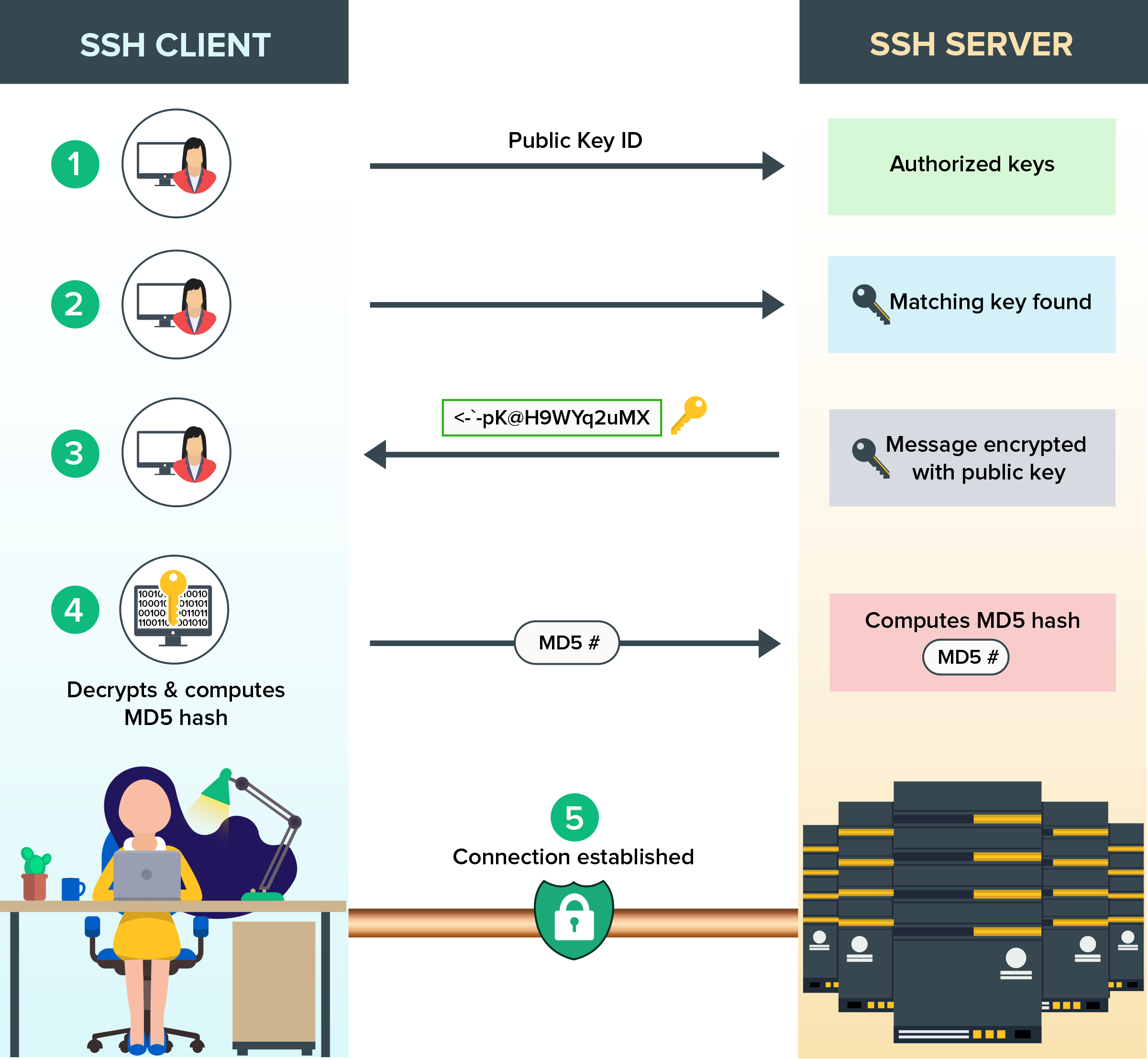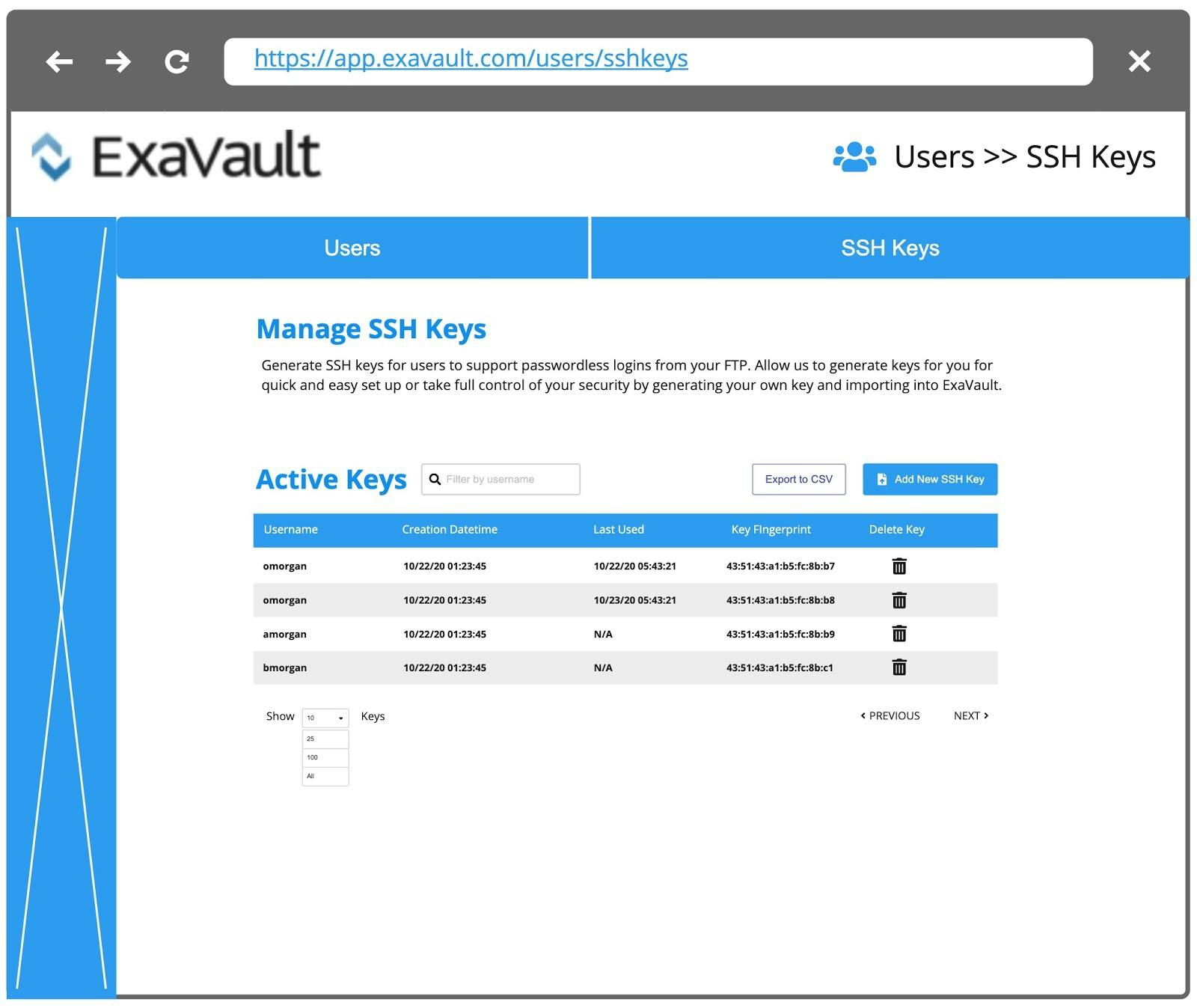Mastering RemoteIoT SSH Key Management: The Ultimate Guide For Secure Connections
Hey there, tech enthusiasts! Let's dive straight into something that's been a game-changer in the world of IoT security: remoteIoT SSH key management. If you're reading this, chances are you're either trying to level up your IoT security game or you've stumbled upon this article because you're curious about how SSH keys work in remote IoT environments. Either way, you're in the right place. This isn't just another tech article; it's your ultimate guide to mastering SSH key management in remote IoT setups. So, buckle up and let's get started!
Picture this: you're managing a fleet of IoT devices spread across different locations, and you need a secure way to access them remotely. That's where SSH keys come in. They're like the digital bouncers at an exclusive club, ensuring only authorized users can gain access. But managing these keys isn't as simple as it sounds. It requires a solid strategy, and that's exactly what we'll be exploring in this article.
Now, before we dive deep into the nitty-gritty of remoteIoT SSH key management, let's set the stage. This article isn't just about theory; it's about practical solutions that you can implement right away. Whether you're a seasoned IT professional or someone who's just starting to explore IoT security, you'll find value in what we're about to discuss. So, let's not waste any more time and jump right into it!
- Hdhub4u Your Ultimate Destination For Highquality Entertainment
- Sadie Mckenna Nude The Truth Behind The Controversy And What You Need To Know
Why RemoteIoT SSH Key Management Matters
In today's interconnected world, securing your IoT devices is more important than ever. RemoteIoT SSH key management plays a crucial role in ensuring that your devices are protected from unauthorized access. Think of it as the digital lock that keeps intruders out. Without proper key management, your IoT infrastructure could be vulnerable to cyber attacks, and that's a risk no one should take lightly.
Here are some key reasons why SSH key management is so vital:
- Enhanced Security: SSH keys provide a more secure authentication method compared to traditional passwords.
- Scalability: As your IoT network grows, managing SSH keys becomes essential to maintain control over access.
- Compliance: Many industries have strict regulations regarding data security, and proper SSH key management helps ensure compliance.
Understanding SSH Keys in IoT
What Exactly Are SSH Keys?
SSH keys are cryptographic keys used for securely accessing remote systems. They consist of a public key and a private key. The public key is shared with the server, while the private key remains with the user. When you're dealing with IoT devices, SSH keys act as the digital handshake that verifies your identity.
- Indian Web Series A Deep Dive Into The Phenomenon Thatrsquos Taking Over Streaming Platforms
- Vega Moviecom Your Ultimate Streaming Destination
How Do SSH Keys Work in RemoteIoT?
In a remote IoT setup, SSH keys allow you to access your devices without needing to remember complex passwords. The public key is stored on the device, while the private key stays securely on your local machine. When you attempt to connect, the keys are matched, and if they align, you're granted access. It's like having a secret code that only you and the device know.
Best Practices for RemoteIoT SSH Key Management
Managing SSH keys effectively is crucial for maintaining security in your IoT network. Here are some best practices to keep in mind:
- Regularly Rotate Keys: Don't let old keys linger around. Set a schedule to rotate them periodically.
- Limit Key Access: Ensure that only necessary personnel have access to SSH keys.
- Use Strong Keys: Always generate strong, unique keys to minimize the risk of compromise.
Common Challenges in SSH Key Management
While SSH keys are a powerful tool, managing them isn't without its challenges. Here are some common issues you might face:
- Key Sprawl: As your network grows, keeping track of all the keys can become overwhelming.
- Unauthorized Access: If keys fall into the wrong hands, they can be used to gain unauthorized access to your devices.
- Compliance Issues: Failing to manage keys properly can lead to non-compliance with industry standards.
Tools for Efficient SSH Key Management
SSH Key Management Software
There are several tools available that can help streamline the process of managing SSH keys. These tools offer features like automated key rotation, access control, and monitoring. Some popular options include:
- SSH.com Manager
- Keyper
- Keywhiz
Cloud-Based Solutions
For those managing large IoT networks, cloud-based solutions can be a game-changer. They offer scalability and ease of use, making it simpler to manage SSH keys across multiple devices.
Data Security in RemoteIoT
Data security is a top priority in any IoT setup. Proper SSH key management is just one piece of the puzzle. You also need to ensure that your data is encrypted during transmission and storage. Implementing robust security protocols will help protect your IoT devices from potential threats.
Real-World Examples of SSH Key Management
Let's take a look at some real-world examples of how companies are using SSH key management to secure their IoT networks:
- Company A uses automated key rotation to ensure that all keys are updated regularly.
- Company B employs strict access controls, allowing only authorized personnel to manage SSH keys.
- Company C leverages cloud-based solutions to manage SSH keys across their global IoT network.
Future Trends in SSH Key Management
As technology continues to evolve, so too does the landscape of SSH key management. Here are some trends to watch out for:
- AI-Driven Solutions: AI is being used to automate and optimize SSH key management processes.
- Quantum Computing: The rise of quantum computing poses new challenges for cryptographic keys, prompting the development of quantum-resistant algorithms.
- Blockchain Technology: Some experts are exploring the use of blockchain for secure key management.
Expert Insights on RemoteIoT SSH Key Management
We reached out to industry experts to get their take on SSH key management in remote IoT environments. Here's what they had to say:
"SSH key management is not just about security; it's about maintaining control over your IoT network. Without proper management, you're leaving yourself exposed to potential threats."
"Automating key management processes is the way forward. It reduces the risk of human error and ensures that keys are always up to date."
Conclusion and Call to Action
And there you have it, folks! A comprehensive guide to mastering remoteIoT SSH key management. Remember, securing your IoT devices isn't just about having the right tools; it's about implementing best practices and staying informed about the latest trends. So, what are you waiting for? Start implementing these strategies today and take your IoT security to the next level.
Before you go, we'd love to hear your thoughts. Leave a comment below and let us know how you're managing SSH keys in your IoT setup. And if you found this article helpful, don't forget to share it with your network. Together, let's build a more secure IoT world!
Table of Contents
- Why RemoteIoT SSH Key Management Matters
- Understanding SSH Keys in IoT
- Best Practices for RemoteIoT SSH Key Management
- Common Challenges in SSH Key Management
- Tools for Efficient SSH Key Management
- Data Security in RemoteIoT
- Real-World Examples of SSH Key Management
- Future Trends in SSH Key Management
- Expert Insights on RemoteIoT SSH Key Management
- Conclusion and Call to Action
- Ullu Series The Sensational Rise Of Indias Dark Web Drama
- Filmyfly Com Your Ultimate Movie Destination

Secure Your IoT Best Remotiot SSH Key Management Solutions

Secure Your IoT Best Remotiot SSH Key Management Solutions

Mastering RemoteIoT SSH Key Management The Ultimate Guide For Secure